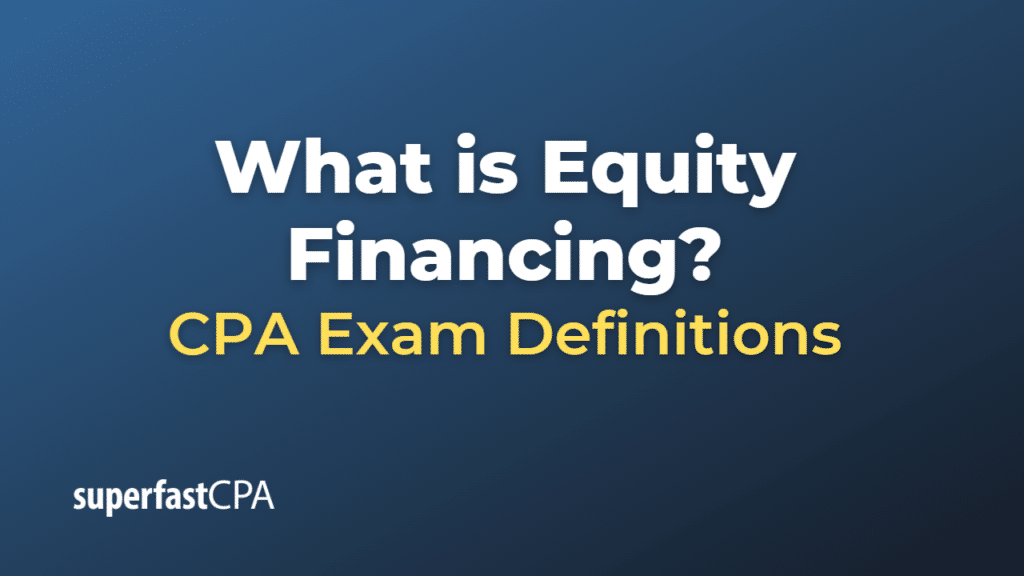Equity Financing
Equity financing is the process of raising capital through the sale of shares in an enterprise. Equity financing essentially refers to the sale of an ownership interest to raise funds for business purposes. This method of financing allows a business to obtain funds without incurring debt, or without having to repay a specific amount of money at a particular time.
Here are the key features of equity financing:
- Sale of Shares: In exchange for money, a company sells shares of ownership in its business.
- No Repayment: Unlike a loan, the funds raised through equity financing do not have to be repaid to the investors.
- Dividends: Investors might expect a share of the profits, typically in the form of dividends, but this isn’t required.
- Control and Decision-Making: Depending on how much equity is sold to outside investors, the original owners may end up with a reduced ownership percentage, and thus, a smaller portion of the profits. Additionally, depending on the rights conferred by the particular class of shares issued, they may also lose some control over decision-making.
- Risk: The risk is shouldered by the investor. If the business does not succeed, the investor stands to lose their investment.
Equity financing can come from many sources: institutional investors, angel investors, public offerings, family and friends, crowdfunding, etc. It is commonly used in many stages of business development, from initial start-up funding, through growth and expansion stages, even as a lifeline when a company is in trouble.
The specific structure of equity financing can vary greatly depending on the nature of the business, the maturity of the business (startup vs. established company), the financial markets, and legal and tax considerations.
Example of Equity Financing
Let’s use the example of a hypothetical tech start-up called “InnovTech.”
InnovTech is founded by Sarah, who invests $100,000 of her own money into the company to get things started. This initial funding is a form of equity financing – Sarah is effectively buying shares in InnovTech. This is often referred to as founder’s equity or owner’s equity.
As InnovTech develops its technology, it starts needing more capital for research and development and for hiring employees. Sarah decides to seek additional equity financing. She finds two venture capitalists who believe in her vision and agree to invest $1 million each into InnovTech.
In exchange for their investment, each venture capitalist receives shares in InnovTech, which collectively represent a 40% ownership stake in the company. Sarah retains a 60% stake. The venture capitalists are taking on risk with their investment; if InnovTech fails, they could lose their investment, but if InnovTech succeeds, they stand to make significant profits.
As InnovTech grows and becomes successful, it might decide to raise more capital through an Initial Public Offering (IPO), which is another form of equity financing. During an IPO, InnovTech would sell shares to the general public, typically through a stock exchange.
This example is a simplified illustration of equity financing. Each stage of equity financing comes with its own considerations and challenges, and companies usually seek legal and financial advice during these processes.













